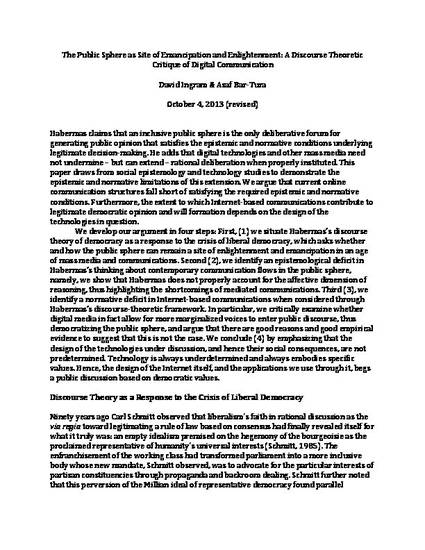
- Civic and Community Engagement,
- Communication Technology and New Media,
- Inequality and Stratification,
- Interpersonal and Small Group Communication,
- Mass Communication,
- Philosophy,
- Political Theory,
- Politics and Social Change,
- Social Influence and Political Communication,
- Social Media and
- Speech and Rhetorical Studies
Habermas claims that an inclusive public sphere is the only deliberative forum for generating public opinion that satisfies the epistemic and normative conditions underlying legitimate decision-making. He adds that digital technologies and other mass media need not undermine – but can extend – rational deliberation when properly instituted. This paper draws from social epistemology and technology studies to demonstrate the epistemic and normative limitations of this extension. We argue that current online communication structures fall short of satisfying the required epistemic and normative conditions. Furthermore, the extent to which Internet-based communications contribute to legitimate democratic opinion and will formation depends on the design of the technologies in question.
© 2014 Boros and Glass

Author Posting. © 2014 Boros and Glass. This is the author's version of the work. It is posted here by permission of Palgrave Macmillan for personal use, not for redistribution. The definitive version was published in Re-Imagining Public Space: The Frankfurt School in the 21st Century (Palgrave Macmillan, 2014). http://www.palgrave.com/us/book/9781137383433